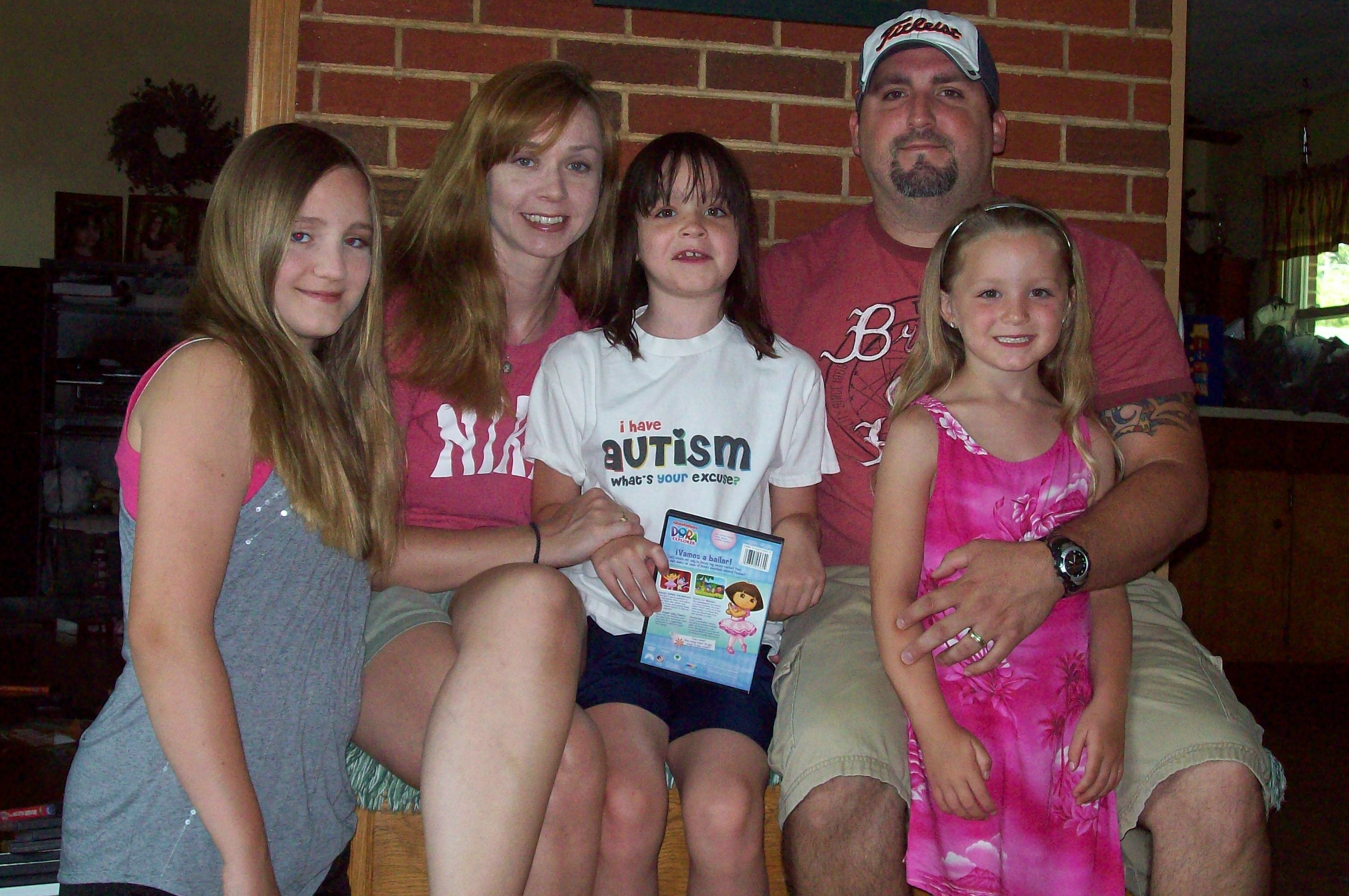Dedicated father mobilizes support for autism research

Denial. It's the word Patrick Patterson uses to describe his reaction to hearing the news that his daughter, Brooke, had autism.
He and his wife, Cheerre, began noticing changes in their daughter soon after she turned 2. Up until that point, her development had been completely normal. But then her talking regressed to babbling and she began to withdraw and keep to herself.
At first, they thought she was having speech problems, so they took her to speech therapy. It didn't help. After several trips to her pediatrician over the next year, Brooke was finally diagnosed with autism spectrum disorder in spring 2006.
The news was devastating for the Patterson family.
"The main fear was for her, it wasn't for me," said Patterson, who has three daughters. "It wasn't the fact that I was going to have a special needs child — I didn't care about that one way or another. I'm going to love her and take care of her regardless."
Patterson's fear was more about the quality of life his daughter would have.
Brooke recently celebrated her 9th birthday and is doing as well as could be expected. She's considered high-functioning. She can talk, but can't carry on a conversation. Most of the time her parents understand what she says, but other times they cannot.
It took time for the family, which lives in Montvale, Va., to adjust to living with and caring for Brooke. And in the years that followed his daughter's diagnosis, Patterson began thinking about a fundraiser to raise both awareness and money for autism research. Between his work and his family, however, he never seemed to have the time, until one day he was online, saw news of an autism-related fundraiser, and was inspired.
"A light bulb went off in my head and I said, 'Hey, you can do that,'" he recalled. "So I did."
Being an avid softball player, Patterson quickly decided on a charity softball tournament as his fundraiser. He then had to decide where the proceeds from the tournament would go, so he began looking around for a worthy recipient.
One of the places he was interested in was the Virginia Tech Carilion Research Institute in Roanoke, Va. A meeting was scheduled with Michael Friedlander, executive director of the institute, and that was all it took.
"We met with Dr. Friedlander and spoke with him a little bit," said Patterson. "He was telling us what they do there, what the money goes toward, and that pretty much sealed the deal."
Patterson toured the research institute in February 2011, which cemented his decision. Seven months later, he hosted the softball tournament. It was a huge success, and later that year he donated proceeds to the research institute to support autism research.
Friedlander said he expects the money from Patterson's softball tournament will go to support at least one of the postdoctoral researchers working on a project that studies what goes on in the brain of people with autism when they're interacting with others.
"We're using a variety of innovative technologies to come up with new ways to very accurately try to diagnose autism spectrum disorders as well as come up with potential new therapies," Friedlander explained.
He said such research requires money, but can also benefit a great deal from community involvement.
"We have a really innovative group of investigators here that are doing things on the research side that are really not being done elsewhere," said Friedlander. "So we want the community of Roanoke, Blacksburg, Virginia Tech, and the Carilion network to take ownership in this. We want everybody to feel like they're a part of it."
Patterson and his family are already part of that community, and he's doing everything in his power to raise both awareness and money for autism research.
Should you ever meet Patterson, you might notice a highly visible tattoo of his daughter on his arm. Go ahead and ask him about it. That's why he got it -- to be a conversation starter so he can spread the word and help support the efforts of researchers like those at the Virginia Tech Carilion Research Institute.
Written by Gary Cope. This story first appeared in Impact, Virginia Tech's philanthropy magazine.




